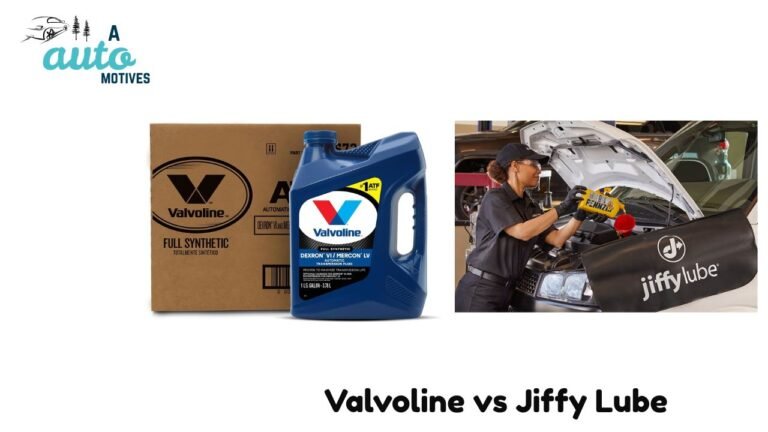How Do I Know If My Car Uses Synthetic Oil?

You’ve probably stood in front of a row of oil bottles at the auto parts store, staring blankly at words like “Full Synthetic,” “Synthetic Blend,” or “Conventional.” At that moment, one question might have popped into your head: “How do I know if my car uses synthetic oil?”
It’s not just you. I’ve been there too—new car, oil light on, manual nowhere in sight. And with so many myths and opinions floating around, figuring it out can feel like solving a puzzle. The truth is, the type of oil your engine needs isn’t just about preference—it’s about performance, longevity, and even safety.
This article is a friendly walk-through. I’m not here to throw technical jargon or overwhelm you with facts. Think of this as a conversation with a buddy who knows cars and genuinely wants to help. By the end, you’ll know exactly how to tell if your car requires synthetic oil—and you’ll feel good about your choice.
What Is Synthetic Oil, and Why Does It Matter?
Before you can answer how do I know if my car uses synthetic oil, it helps to understand what synthetic oil is. In simple terms, synthetic oil is man-made. Unlike conventional oil, which is refined from crude oil, synthetic oil is chemically engineered to perform better.
It’s like the difference between filtered tap water and a perfectly crafted bottled mineral water. They both hydrate, but one is cleaner, more refined, and built for performance.
Benefits of synthetic oil include:
-
Better performance in extreme temperatures
-
Longer oil change intervals
-
Cleaner engine operation
-
Reduced engine wear over time
-
Better fuel efficiency in some engines
Here’s a quick comparison table to make it clearer:
| Feature | Conventional Oil | Synthetic Oil |
|---|---|---|
| Made From | Crude oil | Chemically engineered base |
| Temperature Resistance | Moderate | Excellent |
| Longevity | 3,000–5,000 miles | 7,500–15,000 miles |
| Cost | Low | Higher |
| Engine Protection | Basic | Superior |
If your car is newer, high-performance, turbocharged, or a hybrid, chances are it needs synthetic oil. But let’s not guess—let’s dig deeper.
Check Your Owner’s Manual First—It’s the Bible for Your Car
The absolute first and most reliable way to find out if your car uses synthetic oil? The owner’s manual.
Yes, I know—nobody really reads those thick booklets stuffed in the glove box. But when it comes to understanding oil type, it’s your best friend. Somewhere in the maintenance or lubrication section, the manual will tell you:
-
The exact type of oil recommended
-
The oil viscosity (like 5W-30)
-
Whether it must be synthetic or synthetic blend
If it says something like “use only SAE 0W-20 full synthetic oil,” that’s your clear answer.
And if you don’t have the physical manual anymore? No worries. A quick Google search with your car’s make, model, and year followed by “owner’s manual PDF” usually does the trick.
Pro Tip: If the word “synthetic” appears in the required oil specification, your car is synthetic-dependent. No second-guessing needed.
What If You Bought a Used Car and Don’t Have the Manual?
Now here’s where it gets tricky. Let’s say you bought a used car, and the previous owner left no manual, no oil change records, no clues. That’s when the question how do I know if my car uses synthetic oil becomes more urgent.
Here’s what you can do:
-
Look for an oil change sticker on the windshield or door frame.
-
Call the previous service shop (if listed).
-
Check the oil cap under the hood. Some caps will state “Use SAE 5W-30 Synthetic Oil.”
-
Ask your dealership or a certified mechanic.
If none of that works, just go by the rule of thumb: cars made after 2010 generally use synthetic or synthetic blend oils, especially if they have turbochargers, high compression engines, or are hybrids.
I once bought a 2014 Mazda that didn’t come with a single document. But when I checked the oil cap, it clearly said “0W-20 SYNTHETIC ONLY”. Bingo. No more guessing.
Read the Oil Cap—It May Be Telling You Something
This one’s simple and often overlooked. Just pop your hood and take a peek at the oil cap. Many manufacturers put the recommended oil type right there in clear letters.
If it says:
-
“Synthetic Blend” or “Full Synthetic”
-
“0W-20” or “5W-20 Synthetic Oil Only”
-
“Dexos1 Gen 2 Approved”
Then you’ve got your answer.
But what if it’s blank or unclear? You’re not out of luck yet. You can still use the VIN (Vehicle Identification Number) and call a dealership, or look up your car’s oil spec online.
Ask the Dealership or Use a VIN Decoder Tool
If you’re still unsure and want a sure-shot answer, call your car’s dealership with your VIN number. The VIN is that 17-digit code on the dashboard near the windshield or inside the driver’s door frame.
Dealerships have manufacturer databases that tell them everything about your car, including the recommended oil type.
You can also use online tools like:
-
Toyota’s VIN Lookup
-
Ford’s Owner Site
-
Mobil 1’s Oil Selector Tool
-
Amsoil’s Lookup Guide
These tools usually ask for your make, model, year, and engine type and return the recommended oil specs, including whether it must be synthetic.
Why Some Cars Must Use Synthetic Oil (And Can’t Use Regular Oil)
Now, let’s talk about why it matters. Some engines are engineered so tightly that only synthetic oil can protect them properly. This is especially true for:
-
Turbocharged engines
-
Direct-injection engines
-
Hybrid powertrains
-
German luxury cars (BMW, Audi, Mercedes)
Regular oil would break down too fast under the heat and stress these engines create.
One of my friends had a turbocharged Audi and decided to use conventional oil to save money. A few weeks later, his engine started knocking. Turned out the oil had broken down and left sludge all over the turbo. That one small mistake cost him thousands in repairs.
If your manual or cap says synthetic, do not downgrade. It’s not worth the risk.
Can I Switch from Conventional to Synthetic Oil?
Here’s a question I hear often: “Can I use synthetic oil if my car’s been using regular oil?”
The short answer: Yes, you can. Synthetic oil is perfectly compatible with conventional oil.
In fact, switching to synthetic oil might:
-
Clean out old sludge
-
Improve fuel economy
-
Reduce engine wear
-
Help older engines run smoother
But there’s a catch. If your car has high mileage and leaks, synthetic oil can sometimes find its way through old seals and gaskets, causing minor leaks. That’s because synthetic oil is more refined and flows easier.
If you’re in this boat, consider using High-Mileage Synthetic Oil, which includes seal conditioners to prevent leaks.
What Happens If I Use the Wrong Oil Type?
So what if you’ve been using regular oil this whole time, but your car actually needs synthetic oil? You might be wondering if you’ve done damage—or if your car’s still okay.
Here’s the honest truth: One or two conventional oil changes won’t kill your engine, even if synthetic is recommended. But over time, regular oil breaks down faster, can’t handle extreme heat as well, and doesn’t clean the engine like synthetic oil does.
Imagine running a marathon in flip-flops instead of sneakers. You can probably make it… but not without stress, discomfort, and long-term strain.
Signs you’ve been using the wrong oil might include:
-
Louder engine noise
-
Lower fuel efficiency
-
Engine running hotter
-
Rough starts in cold weather
-
Sludge buildup over time
If you’ve been using the wrong oil and just realized it, don’t panic. Simply switch to full synthetic at your next change and keep up with regular intervals.
Synthetic Blend vs Full Synthetic—Does It Matter?
Another layer to this question—“how do I know if my car uses synthetic oil”—is understanding the difference between synthetic blend and full synthetic.
Here’s a quick breakdown:
| Type | What It Is | Best For |
|---|---|---|
| Synthetic Blend | Mix of conventional & synthetic base oils | Older engines, tighter budgets |
| Full Synthetic | Pure lab-made oil with additives | Modern, high-performance engines |
Synthetic blend is sort of the middle child. It offers more protection than conventional oil but doesn’t give you the full benefits of synthetic. If your car says “synthetic blend,” you can upgrade to full synthetic—but not the other way around.
I personally use full synthetic in my car, even though it technically allows for a blend. The difference in how smooth the engine runs in both summer heat and winter mornings is night and day.
Real-World Story: My Switch to Synthetic Oil
Let me tell you a quick story. A few years ago, I drove a used 2010 Toyota Camry that was my daily driver. It was reliable but had over 120,000 miles. The oil light kept coming on sooner than expected, and the engine sounded like it was struggling, especially on long drives.
A friend suggested I switch to synthetic oil. I was skeptical—it was more expensive, and I figured old cars didn’t need fancy oil. But I gave it a try.
What happened after the switch?
-
The engine ran quieter
-
My oil change interval jumped from 3,000 to nearly 7,000 miles
-
Fuel mileage improved slightly
-
Cold starts were smoother in winter
That experience taught me something: even older engines can benefit from synthetic oil, as long as you monitor leaks and use the right weight.
Signs Your Car Needs Synthetic Oil
Not every car needs synthetic oil, but many modern engines demand it. So how do you know if your car actually requires it, not just prefers it?
Here are clear signs your car likely must use synthetic:
-
Your owner’s manual specifically states “Full Synthetic”
-
The engine is turbocharged or supercharged
-
It’s a luxury or performance vehicle (BMW, Audi, Lexus)
-
You drive in extreme weather—hot or cold
-
You regularly tow, haul, or drive long distances
-
The car has start-stop engine systems or is a hybrid
If two or more of those apply to your car, don’t cut corners. Use synthetic oil. It’s made for engines under stress.
FAQs: Quick Answers to Common Questions
Let’s answer some frequently asked questions that people often ask after wondering, how do I know if my car uses synthetic oil?
Q1: Can I mix synthetic and regular oil?
Yes, in emergencies. But it dilutes the performance benefits of synthetic. Stick to one type for best results.
Q2: How often should I change synthetic oil?
Usually every 7,500 to 10,000 miles, but check your manual. Some high-performance synthetics can go up to 15,000 miles.
Q3: Will synthetic oil clean my engine?
Yes. It has detergents that reduce sludge and carbon buildup, especially if you’re switching from conventional oil.
Q4: Can synthetic oil cause leaks in older cars?
It might, especially if seals are worn. But high-mileage synthetic oils help prevent and stop leaks by conditioning seals.
Q5: Is synthetic oil worth the higher price?
Absolutely—if your car needs it. It lasts longer, protects better, and can save money on engine repairs long-term.
Q6: How do I find my car’s oil type online?
Use the VIN on the manufacturer’s website or tools like Mobil 1’s or Amsoil’s oil selector guides.
Q7: What oil do dealerships use?
Most modern dealerships use full synthetic oil, especially for newer models under warranty. Ask them directly to confirm.
Q8: Can switching to synthetic oil improve fuel economy?
Yes, but marginally. The real savings come from engine longevity and reduced wear, not just MPG.
Key Takeaways—Trust the Signs, Not Just Your Gut
If you’ve been asking, “how do I know if my car uses synthetic oil,” remember this isn’t just a technical question—it’s a decision that affects your engine’s health, your wallet, and your car’s future.
Let’s wrap it up:
- Use your owner’s manual first
- Check the oil cap under the hood
- Use your VIN or online tools for clarity
- Ask a dealership or certified mechanic if unsure
- Look for engine specs—turbo, hybrid, luxury = synthetic
Final Thoughts: Your Car Deserves Clarity, Not Guesswork
Cars today aren’t like the ones we grew up with. Engines are more advanced, more efficient, and more sensitive to the type of oil you put in them. Guessing your oil type is like guessing the right medicine—it might work, or it might not.
If your car needs synthetic oil, treat it right. And if you’re still unsure, when in doubt—go synthetic. It’s better to give your car more protection than less.
So next time you pop the hood or walk into an oil change shop, you won’t ask “how do I know if my car uses synthetic oil?” You’ll know.
And that, my friend, is confidence every driver should have.






